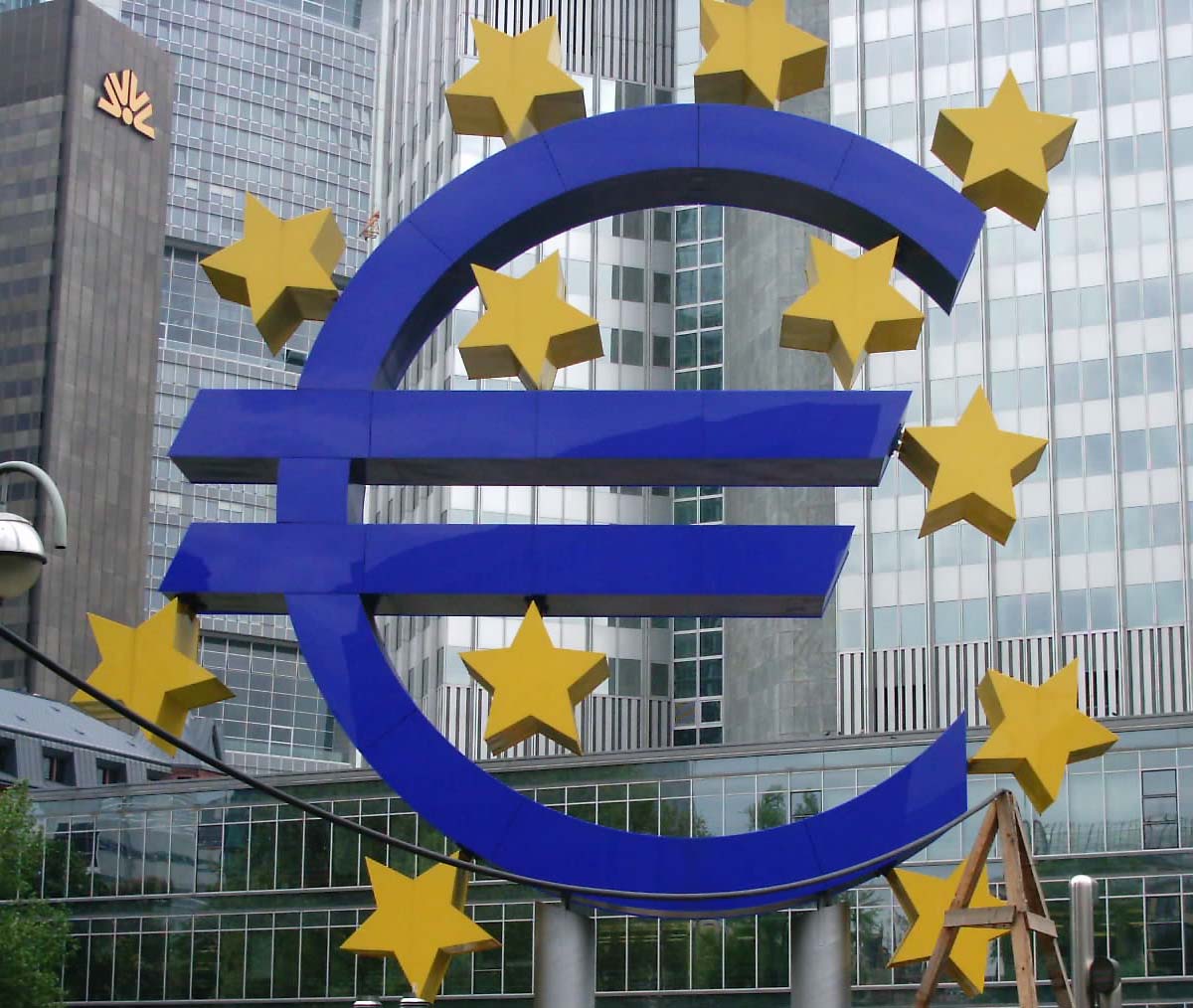
European markets have fallen after the European Central Bank (ECB) president Mario Draghi said the bank would come up with ways to help struggling eurozone countries “over the coming weeks”.
Analysts had been hoping for more details and immediate action.
Help from the ECB would also only be given if the governments themselves made certain commitments, he said.
The Spanish and Italian stock markets fell sharply while both countries’ borrowing costs rose sharply.
Earlier, the ECB kept the main eurozone interest rate at a record low of 0.75%.
There had been hopes that Mario Draghi could announce immediate measures to bring down the cost of borrowing for some of the eurozone’s struggling members.
“What we have expressed is guidance, and strong guidance, about strong measures which will be completed in the coming weeks,” Mario Draghi said.
High borrowing costs have been at the centre of the eurozone crisis, with countries needing bailouts when the yields on their 10-year bonds have been consistently above 7%.
Bond yields are taken as indicators of what interest rate governments would have to pay to borrow money.

Mario Draghi said that the high yields on some eurozone government bonds were unacceptable, adding that, “the euro is irreversible”.
He said the ECB may intervene in the bond markets to support struggling nations.
But having fallen in recent days due to the anticipation of ECB support, Spain’s 10-year bonds rose above 7% after Mario Draghi spoke, having been at 6.6% before he started.
“Once again, we have no commitment to action from the ECB, and no execution of promises previously made,” said Carl Weinberg, chief economist at High Frequency Economics.
“Traders and investors who expected immediate action are, and should be, disappointed. More scolding of governments, but no ECB action, is the bottom line.”
The yield on Italian 10-year bonds rose from 5.7% before Mario Draghi spoke to 6.2% afterwards.
But yields on short-term bonds fell, reflecting Mario Draghi’s plans to buy them instead of longer term debt.
Some analysts were more positive about Mario Draghi’s comments.
“This is a revolutionary policy, as far as the ECB is concerned. It means the ECB plans to go into the markets and buy bonds, of two to three-year durations, in very substantial quantities,” said Nick Parsons at National Australia Bank.
“These are potentially unlimited and should be big enough to have the desired effect. Mr. Draghi is certainly on the right track.”
At his press conference, Mario Draghi said that the ECB’s bond-buying process would resume, but that it would be different to the Securities Markets Programme (SMP), which involved buying large quantities of government bonds from banks and other financial institutions on the open market.
Mario Draghi said that the new scheme would involve buying shorter-term bonds, which should allay some of the fears of the German government, worried about having to guarantee debts of weaker countries for years.
Governments, however, would also first have to apply for help from one of the eurozone’s rescue funds, the European Financial Stability Facility or the European Stability Mechanism, he said.
They would also have to demonstrate they were making necessary changes.
“Policymakers in the euro area need to push ahead with fiscal consolidation, structural reform and European institution-building with great determination,” he said.
Currently, the European bailout fund – the EFSF – and its delayed sister fund – the ESM – would require any country seeking help to sign a memorandum of understanding, or promise to carry out certain measures such as cutting spending or raising taxes.
When asked whether Spain, and Italy would, therefore, have to submit to similar strictures imposed on Portugal, Ireland and Greece before the ECB could act to buy their bonds, Mario Draghi replied: “Yes, that is exactly how you should see it.”
There were also signs of continued division on the ECB governing council.
Asked whether the ECB’s decisions had been unanimous, he replied: “The endorsement to do whatever it takes to preserve the euro as a stable currency has been unanimous.”
“But it is clear, and it is known, that Mr. Weidmann [ECB member and head of the German bank] and the Bundesbank have their reservations… about buying bonds.”
The ECB, which sets the cost of borrowing for the 17 countries which use the euro, cut its key rate from 1% to 0.75% last month, to try to bring down borrowing costs and stimulate economic activity.